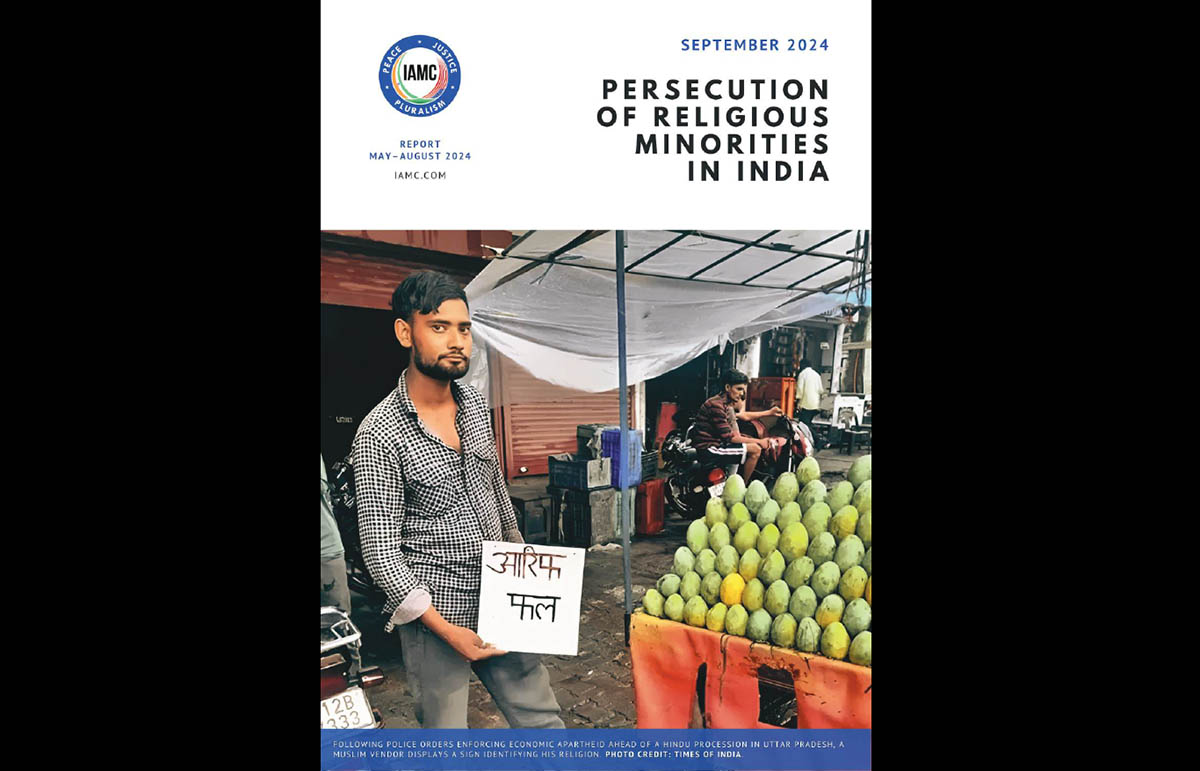
By sabrangindia
The Indian American Muslim Council’s second quarterly report for 2024 highlights the intensifying violence and persecution faced by India’s religious minorities, particularly Muslims and Christians, following Prime Minister Narendra Modi’s re-election for a third term in June 2024. The report underscores how Modi’s Bharatiya Janata Party (BJP) has continued to exploit anti-Muslim hate speech and divisive propaganda to polarise voters. This polarisation, combined with the government’s control over mainstream media and its use of state institutions to target political opposition, undermined the fairness of the elections. The Modi regime also abused its power by jailing opposition leaders, freezing the Congress Party’s bank accounts, and suppressing Muslim voters, with many reporting violence, intimidation, and manipulation of voter registries during the polls.
The report documents a worrying trend of anti-minority violence both during and after the elections, with a spate of anti-Muslim mob lynchings occurring soon after Modi’s third term began. Structural violence also persisted, including punitive demolitions, discriminatory policies, arbitrary detentions, online censorship, and unchecked police brutality. The state has failed to curb rising cow vigilantism and routine violence against minorities, which continues to fuel communal tensions. IAMC’s report calls for immediate action to address these grave human rights violations, emphasising the urgent need to protect India’s religious minorities from further persecution and uphold the country’s constitutional commitment to secularism.
Brief details of the report
- Persecution and discrimination against Muslims
The report provides that between May and August 2024, incidents of persecution and violence against Muslims in India continued to rise, driven by both police brutality and vigilante attacks by Hindu extremist groups. Muslims across various states faced brutal assaults at the hands of law enforcement, often for minor or fabricated offenses. For instance, on May 2 in Gujarat, a 28-year-old Muslim vendor was violently attacked by police, leading to his paralysis and eventual death. In other incidents, Muslims were targeted over accusations of cattle transportation or minor infractions, such as a man in Delhi who was tortured by police on May 30 simply for riding a motorcycle without a license plate. These incidents reflect an alarming trend of police forces acting with impunity, often accompanied by hate speech and anti-Muslim slurs.
Hostility towards Muslims extended beyond police actions, with Hindu extremist mobs frequently engaging in violence. These attacks were often fuelled by accusations of “love jihad” – a conspiracy theory alleging Muslim men are attempting to convert Hindu women through marriage. In June, a Muslim man in Uttar Pradesh was stripped and beaten by a mob for speaking to a Hindu girl, while in Uttarakhand, two men were falsely accused of abducting a Hindu girl, leading to the forced exodus of 41 Muslim families from their town. These incidents demonstrate how hate-filled rhetoric and false accusations are used as tools to justify violence and drive communal tensions.
In addition to physical assaults, Muslims also faced economic and social discrimination, as Hindu supremacist groups continued to push for their exclusion from housing and public spaces. In Vadodara, Gujarat, residents protested against a Muslim family renting an apartment, and in Rajasthan and Uttar Pradesh, posters and protests urged Hindus not to sell property to non-Hindus. Similarly, Muslim labourers and professionals were attacked for their religious identity, such as the case of a Muslim lawyer in Uttarakhand who faced harassment for representing interfaith couples.
This story was originally published in sabrangindia.in. Read the full story here.

